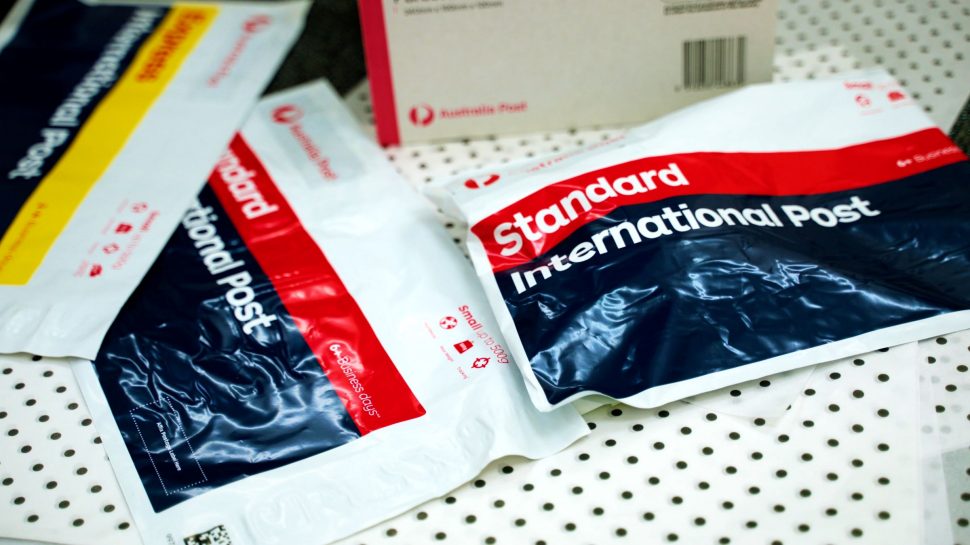6 things to consider when expanding your eCommerce business into Asia
The Asian market can be lucrative for Australian eCommerce businesses. Customers across South-East Asia are spending more online, a trend that’s expected to continue growing.

Key points
- It’s vital to do market research to understand consumers in Asian markets.
- Before you take the step of international business expansion, make sure you do a deep dive into the legal and regulatory requirements.
- Working with a reliable delivery partner will help to set you up for international success.
Whilst in Australia 48% of consumer spending happens online, it’s significantly higher for many countries in Asia. 62% of consumer spending in India and China is online, 61% in Thailand and 53% in Indonesia.1
Before jumping in, there are important considerations that will help you navigate the complexities of an eCommerce business expansion into Asia.
1. Conduct thorough market research
Before launching in any new region, it’s important to research the market. Asia is a diverse continent with varying cultural norms, consumer behaviours and preferences in each country. Start by identifying which countries in Asia align with your business expansion strategy and target audience.
Research the local competition, regulatory requirements and payment preferences. Understanding the market landscape will help you tailor your strategies and avoid costly mistakes.
Consider the resources you’ll need to sustain go-to-market and retain traction in a new region. Dianne Biviano, Head of Marketing, Viktoria & Woods suggests: “Map out the costs involved, particularly to maintain your presence within those markets. You need to have a good amount of budget to fuel your digital program and affiliate program. Know what realistically you need to make an impact. You can never have too much budget.”
There are some practical considerations too to accommodate different seasons and tastes. “We're in Australia, but if you're selling to the northern hemisphere, they're in a different season, so you have to make sure that you're tailoring a collection of pieces that are relevant to them,” says Dianne.
2. Localise your website and content
One size doesn’t fit all when it comes to eCommerce in Asia. Investing in localisation will enhance the user experience and build trust with your target audience.
To effectively engage with local consumers, you’ll need to localise your website and content. This includes translating your website into the local language, adapting product descriptions and marketing materials to suit cultural preferences, and incorporating local payment methods.
It’s also worth researching where your potential customers are shopping and the technology they’re using. In some parts of Asia, mobile device penetration is up to or over 100%.2 Read more about the social media and eCommerce platforms popular in each region of Asia in our International Sending Playbook.
In many Asia-Pacific regions, social media influencers and family members have the most influence on consumers. Generation Z is most interested in user reviews on social media.3
Not only are the social media platforms used by consumers in Asia different to those popular in Australia, social shopping is also more popular. Sales through social networks account for an estimated 18.5% of all online sales, and this figure is expected to increase year on year.4 Live shopping is also growing in popularity – consumers join live streams where sellers share inspiration, ideas and special offers. More than 70% of shoppers have engaged in live shopping in China, India, Thailand, and United Arab Emirates.4
Viktoria & Woods have been selling in China for over six years. “We sell directly to Chinese customers in mainland China on our social media channels WeChat and Red Book [Xiaohongshu]. We also have a strong Asian community within Australia that loves the products, and we sell directly to them through our retail network and through WeChat,” says Dianne Biviano. “If you want to save time and resources reaching a large number of consumers quickly, it’s also worth setting up shop on an established and credible marketplace platform,” she adds.
3. Build your understanding of the culture
Cultural nuances play a significant role in consumer behaviour and purchasing decisions in Asia. What works in one country may not resonate with customers in another.
Take the time to understand cultural sensitivities, holidays and traditions that may impact your marketing campaigns and product offerings.
For example, Chinese New Year online sale events are very popular in China, which is one of Asia’s largest eCommerce markets. Singles Day Sales are also driven by customers in China, who make it the largest retail shopping date in the global calendar.
Building relationships with local influencers or partners can help you navigate cultural nuances and establish credibility with your target audience. “As a new brand you need to find trusted advisors within that market who are going to help you advocate your brand to their community. Choosing the right influencers can sometimes make or break you,” explains Dianne Biviano, Head of Marketing, Viktoria & Woods.
4. Do your due diligence on legal and regulatory issues
Each country in Asia has its own set of regulatory requirements and legal frameworks for eCommerce businesses.
From data privacy regulations to import and export restrictions, it’s vital that you understand and comply with local laws to avoid potential legal issues or fines.
Consult with legal experts or local advisors who are familiar with the regulatory landscape. Also seek advice to ensure your IP is secured.
5. Get to know what good customer service means in a different location
Providing excellent customer service is essential for building trust and loyalty, especially in new markets. This includes understanding cultural norms around customer service. Addressing issues promptly and respectfully can help you establish a positive reputation in the market.
Offering multilingual customer support and localising communication channels (like chat support and email) can enhance the overall customer experience.
“We have invested in AI technology within our customer care team. We’ve done a lot of work around scripting to make sure that they've got 24-hour care and we also have a customer care team who work full time throughout the week to assist with any customer queries,” explains Dianne Biviano, Head of Marketing, Viktoria & Woods.
6. Work with a reliable international delivery partner
Reliable and timely deliveries to your customers are essential for success in eCommerce, especially when you’re establishing your reputation in new markets.
Online shoppers around Asia have high expectations about receiving deliveries quickly and on time. Plus, Asia’s vast geography and diverse infrastructure can present logistical challenges, including shipping, customs clearance and last-mile delivery. That’s why it’s so beneficial to work with Australia Post as your reliable delivery partner.
Save time and money with MyPost Business international sending
Save time and money with MyPost Business international sending
Save up to 35% on international sending with MyPost Business and make sending overseas easier, with smarter features including auto populating the HS tariff code. Sign up for free today.
Get business stories, ideas and offers in your inbox each month.
1 https://www.statista.com/statistics/1332912/apac-share-of-online-spending-by-country/
2 https://www.statista.com/statistics/487965/internet-penetration-in-southeast-asian-countries/
3 https://www.statista.com/statistics/1332912/apac-share-of-online-spending-by-country/
4 https://www.statista.com/statistics/1251145/social-commerce-share-worldwide/


.jpg.auspostimage.970*0.169.medium.jpg)
